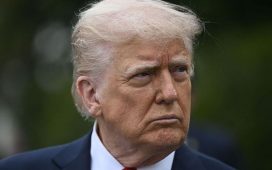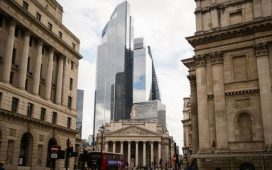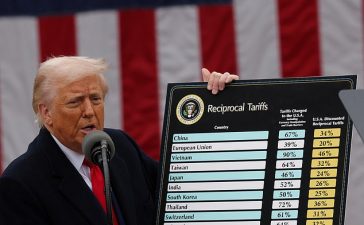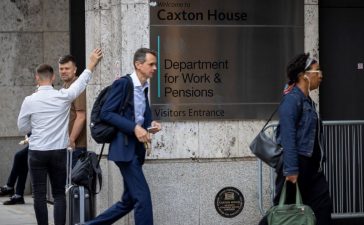In the baying arena of the House of Commons, Rishi Sunak seemed lost for words. What, a Labour MP asked, did the British prime minister consider to be the finest foreign policy achievement of his new foreign secretary, David Cameron? “There are many, many to pick from,” Sunak floundered. Was the Eurosceptic PM really going to say “Brexit”?
Cameron, the former premier who accidentally led Britain out of the EU, is back on the political frontline. But some Conservatives are wondering why. Rather than the largely-forgotten 2013 G8 summit in Northern Ireland, which a blustering Sunak landed on as an answer, Cameron is more likely to be remembered for calling, and losing, a referendum on EU membership. Cameron had warned it would be an “act of economic self-harm”, but a majority of the voting public ignored him; on June 24 2016, with the pound crashing around his ears, he walked out into Downing Street to announce he was quitting.
After seven years in the wilderness — punctuated by his involvement in the biggest Westminster lobbying scandal of recent times — Cameron was yesterday’s man. But on Monday, a familiar figure — with just a few more lines on that smooth face — strode into Number 10 to accept Sunak’s offer of a job in his revamped cabinet.
“It’s incredible, especially after Greensill,” lamented one right-wing former cabinet minister, referring to Cameron’s highly paid role lobbying for the failed financier Lex Greensill. Indeed, Cameron carries more baggage than a Heathrow carousel. As premier from 2010-2016, he was the architect of post-crash austerity, a “golden era” of alleged kowtowing to China, an ill-fated military intervention in Libya — and Brexit.
And yet, when the 57-year-old Cameron entered Downing Street it was as if he had not been away — no longer an MP, he will re-enter parliament via the House of Lords. An imposing physical presence, the soon-to-be Lord Cameron towered over the slight Sunak in the appointment photo-call, then dominated a cabinet meeting the next day.
“It was the best meeting I’ve been to,” said one minister. “He knew exactly how to direct the debate.” Another cabinet member said: “There was a real buzz. He was fully engaged, even though he’d only been in the job for two minutes.” Tory MPs refer to Cameron as a rare “grown up” in Sunak’s team.
Sunak, whose Conservatives trail the Labour opposition by about 20 points in the polls, appears to be heading for defeat in the election expected next year. Appointing a heavyweight to oversee foreign policy — leaving the prime minister free to concentrate on domestic issues — was widely seen as a last throw of the dice.
It also indicated a shift away from Sunak’s recent flirtation with rightwing causes back to more moderate, centre-right Conservatism. Although some point to Cameron’s tough austerity policies in office as evidence of right-wing tendencies, he also has a record of promoting same-sex marriage and, at least initially, green causes.
“He’s really, really pleased to be back,” says a close friend. “I think he has come to the conclusion that public service is his thing. And we are not going to let the right win and hijack everything we have worked for. We are a sensible party of the centre.”
When Cameron left office in 2016 he appeared broken. “I remember going to see him and he seemed to be spending most of his time on the sofa watching tennis,” says another friend. He was derided for buying a shepherd’s hut, in which he wrote his memoirs. He also filled his time making speeches, trying and failing to set up a UK-China investment fund, working for Greensill and campaigning for Alzheimer’s research.
“He was going nowhere,” says Francis Elliott, his biographer, noting that Cameron’s deputy in the coalition government, former Liberal Democrat leader Nick Clegg, now has a high-powered job as head of global affairs for tech giant Meta. Nothing similar came Cameron’s way. “Clegg got a decent job and he didn’t. The phone didn’t ring.”
And yet, many of those who worked with Cameron speak highly of him as a capable and motivational administrator. David Laws, a minister in the coalition, said: “He was always on top of his brief. He was good at really big strategy stuff.”
Cameron, who modernised and “detoxified” his party and hauled it back to the political centre, has the contacts and political depth to master the foreign policy brief during multiple international crises. On Thursday he made his first overseas trip, to Kyiv.
Lord Kim Darroch, Cameron’s former national security adviser, said: “He’s quite a foreign policy geek. We must have been to Afghanistan at least a dozen times and every time he’d want to go somewhere different, see something new.”
Cameron’s return has infuriated some on the Tory right — former party leader Sir Iain Duncan Smith said he was “astonished” — and the new foreign secretary made at least a token effort at placating them: “We must stop the boats and tackle illegal migration,” he dutifully tweeted.
Only last month Sunak told the Tory conference that he would offer the voters “change”, lambasting the failures of the previous “30 years of status quo”. Cameron, prime minister for six of those years, was “really pissed off”, says a friend.
Elliott says Sunak’s decision to turn to his predecessor for help may be mutually beneficial — and was a no-brainer for Cameron. “If anyone needed a second act, it was him.”








